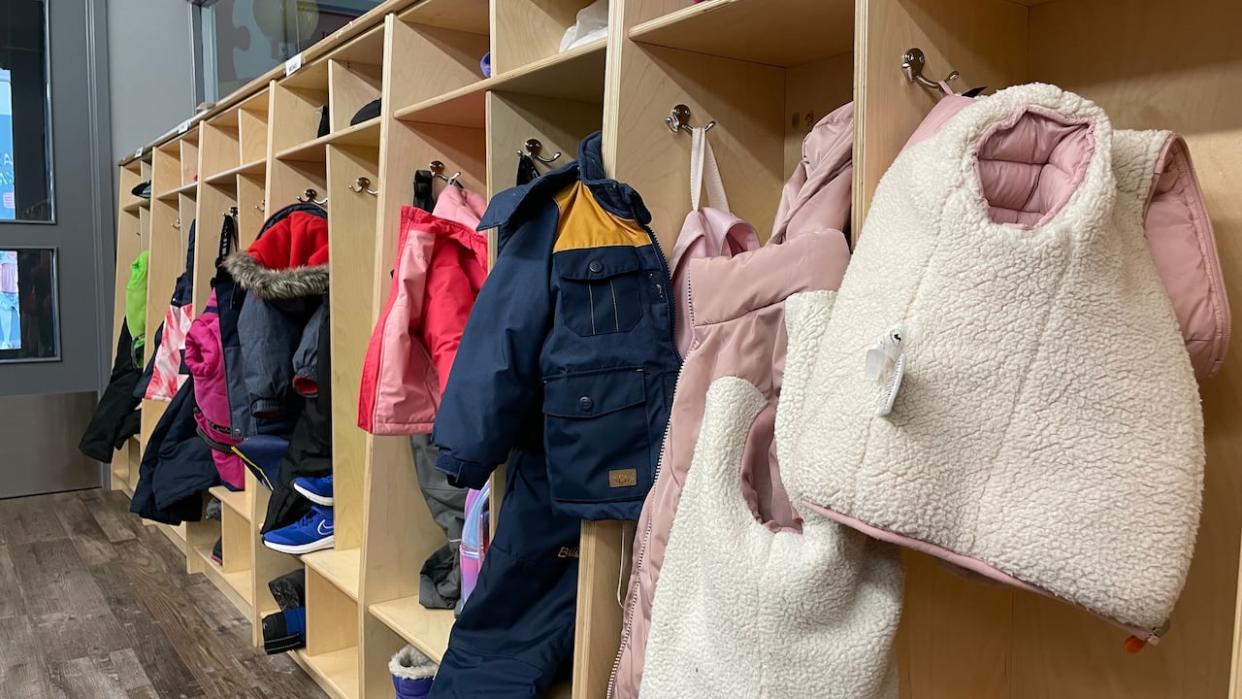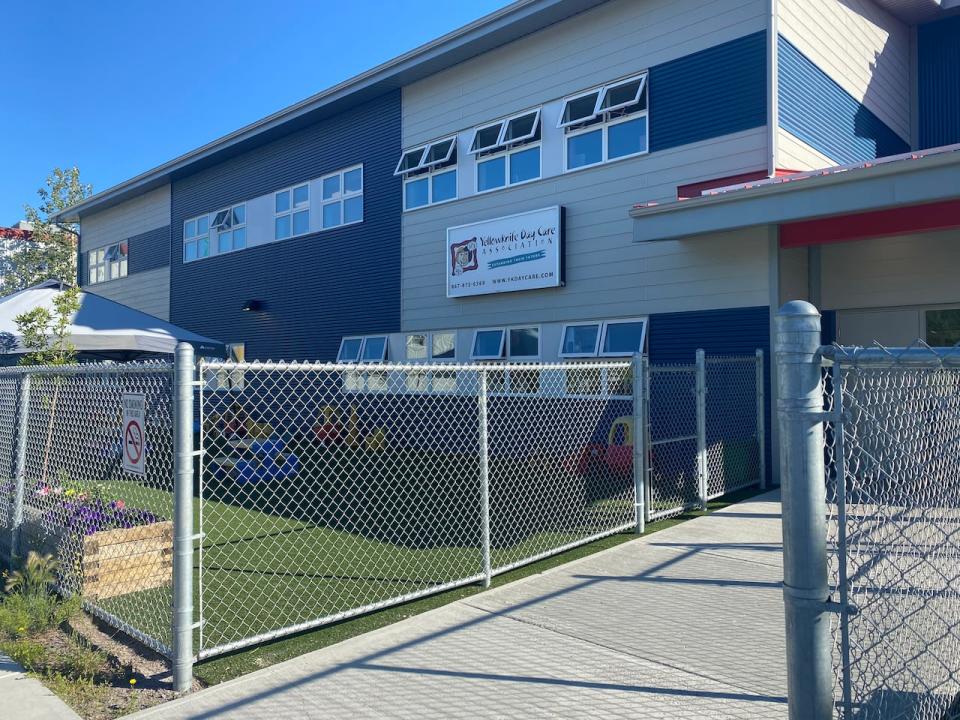N.W.T. a quarter of the way to creating 300 new child-care spaces by 2026

The Northwest Territories has committed to creating 300 new child-care spaces by 2026, and officials say they're on track to meet that goal — even though the territory has only opened 76 new spaces so far.
The new spaces are part of a deal with the federal government focused on making child care more accessible and more affordable. A $50 million investment from Ottawa in 2021 was intended to create the 300 new spaces and reduce child-care fees to $10-a-day within a five-year span.
The N.W.T. has been offering $10-a-day daycare since April 1. But with lower prices comes increased demand in an already-strained system wanting for child-care spots.
"That has been a really tough challenge for provinces and territories," according to Peter Jon Mitchell, the author of a new report out of Ontario-based think tank Cardus.
The report analyzes the first year of the deal, from 2021 to 2022. Mitchell says the analysis is lagging because the reports provinces and territories are required to submit to the federal government also lag.
He says creating new spaces is a challenge across the country and while it's partly the result of national labour shortages, Mitchell said the deal doesn't allow enough flexibility for parents in different regions of the country.
In 2023, only about a quarter of children aged six and younger in the N.W.T. were in a facility that could benefit from this type of funding. About 15 per cent were in a child-care home that could be licensed, and benefit from the deal, or might not be.
Another 28 per cent of children that age were in the care of another relative, and don't benefit from the agreement.
"So in fact, a majority of children zero to six in the territory received no benefit from this program," he said.
If the money had gone to parents directly, Mitchell said it would be more equitable.

The Yellowknife Daycare Association, in 2020. Spots for child care are scarce in N.W.T. centres and some communities don't have licensed child-care spaces at all. (Michaela Crook/CBC)
Many of the territory's 33 communities have no child-care facilities at all, meaning some communities cannot benefit from the deal. Matthew Milovanic, director of the territory's department of Education, Culture and Employment (ECE), says the government is working to change that.
He said the government currently has a pilot program that allows those in public housing to open a family day home in government-owned units. He said ECE also has funding to support those looking to open a new child-care space.
"The [government of the Northwest Territories] is very aware that it needs to create those 300 spaces in the Canada-wide agreement," he said.
Milovanic also said they're on track to meeting that goal.
Asked if the territory would be looking at ways to make the funding more equitable for families not enrolling in licensed child-care centres, Milovanic said he could not comment on any future negotiations.
In the first year of the program, the territory spent only about $1 million of the $6 million allocated. Milovanic said that's because the governments signed the deal in December 2021 and the fiscal year ends March 31, 2022.
"There wasn't a whole lot of time to be able to spend all of that year's funding," he said.
The funding carries over to the following year and Milovanic said the territory spent $6.6 million in 2022-23 and approximately $8.7 million in 2023-24.


